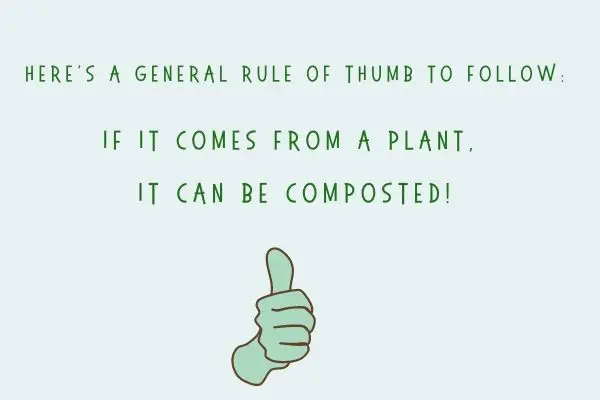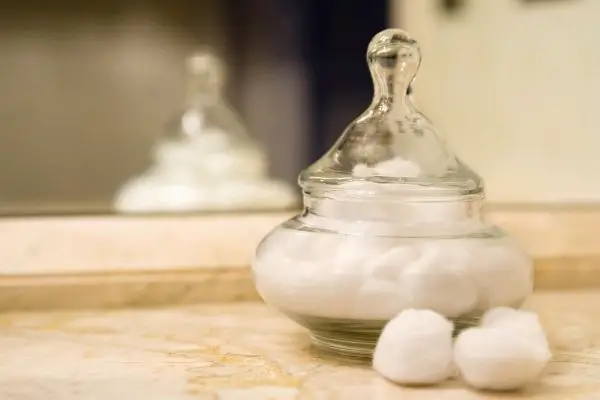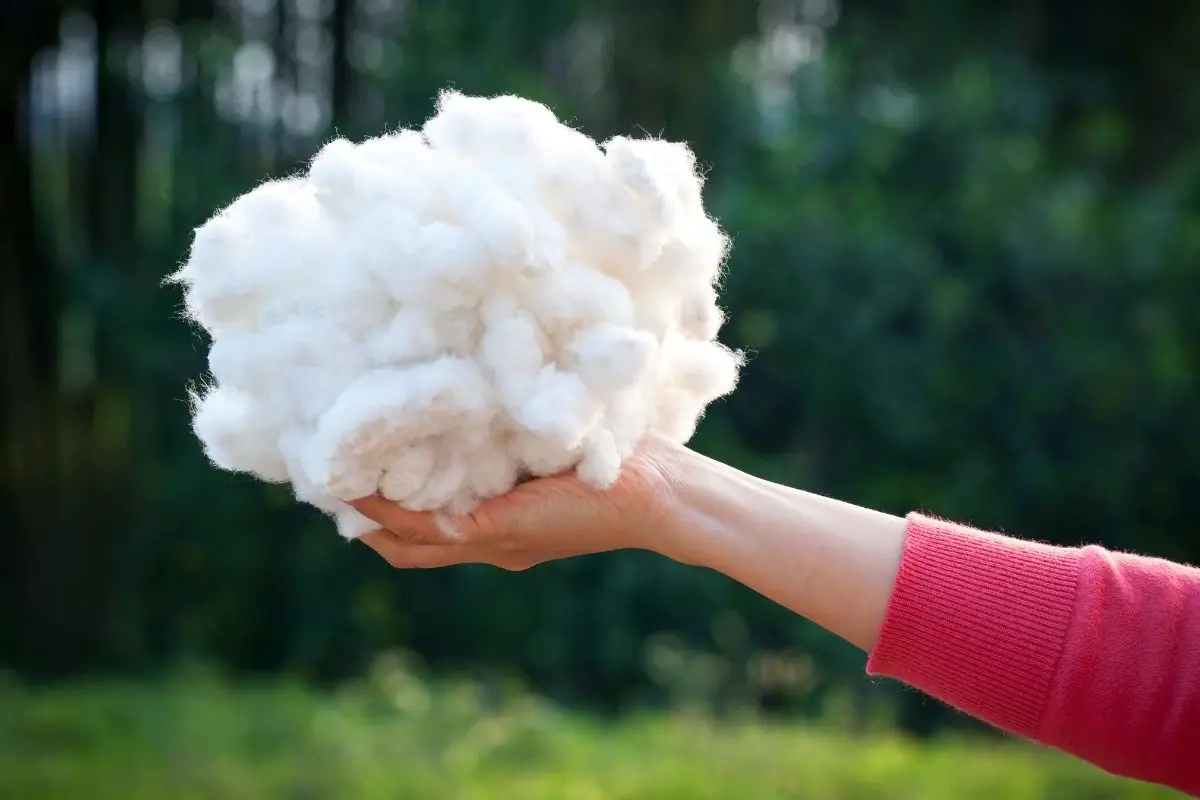Composting Ideas: Can Cotton Be Composted?
Composting isn’t just for the kitchen scraps!
There are far, far more household items that can be composted (either with Bokashi or traditional compost) than you probably realize.

Paper products are excellent examples of this rule in action.
But what about other plant-based products we use every day (but often take for granted)?
Cotton can be composted just like other plant-derived materials. It’s extremely easy to do, as long as you take a few precautions beforehand!
Is Cotton Compostable?
Cotton is 100% plant-based. So, yes, it is compostable!

Composting is a great way to sustainably dispose of cotton at home. But cotton and its natural byproducts can also be composted on an industrial level.
Even cotton harvesters are jumping on the composting trend. In these cases, cotton mill waste like seeds and husks are composted instead of being disposed of in an incinerator.
How To Compost Cotton
Composting unprocessed cotton is practically a no-brainer. Just toss it in the compost pile and watch the magic happen.
However, the average household will rarely, if ever, find themselves disposing of raw cotton.
The most important step in composting cotton-based consumer products is ensuring that no other (non-compostable) materials are present. Once that’s done, composting cotton of any kind is fairly easy.
Here’s how to safely compost the most common cotton items:
Cotton Balls
Can you compost cotton balls? Yes!
In fact, they are one of the most straightforward cotton items to dispose of.
Clean cotton balls can be added to compost without worry. Distribute cotton balls throughout your compost to prevent clumps that will slow down decomposition.
Since cotton balls are frequently soaked with personal care and cleaning products, you may be worried about adding used cotton balls to your compost. Fortunately, small amounts of alcohol, lotion, makeup, and similar products will not harm your compost.

Do NOT compost cotton balls that may have come into contact with harmful pathogens. This applies to cotton balls used in a medical or first aid context.
Cotton Swabs
Cotton swabs (or Q-tips) can also be placed in the garden compost. But you need to be sure cotton is the only thing being added!
Some cotton swabs are made with cardboard sticks. Others are made with plastic. Only the former should be added to compost.
When deciding whether used cotton swabs should be composted or not, follow the same guidelines as you would for cotton balls.
Cotton Fabric
Donating used clothing is not the only way to responsibly dispose of it. In the case of cotton-based items that are too well-loved to go on to a new owner, composting may be the best option.
For the best results, cut cotton fabric into small pieces before composting. This will make the material easier to distribute and speed up decomposition.
Again, only 100% natural fabric can be composted.
Many fabrics, especially those used to make clothing, feature a blend of cotton and synthetic fibers. These synthetic fibers will not break down in a composting environment. You should be able to easily identify these materials by referencing the care tag.

Is Cotton Recyclable?
Yes! Previously used cotton fibers can be recycled and turned into new materials.
These older fibers are typically blended with new ones to make up for lost strength. However, this still leads to a reduction in the amount of new cotton being harvested and processed!
To recycle used cotton clothing and other items, send them to a special textile processing center. Do not place cotton in your household recycling bin (unless your local recycling center explicitly states that they will accept it).
Frequently Asked Questions
How long does it take cotton to decompose?
Cotton takes an average of 5 months to naturally decompose. However, the ideal composting environment can break down cotton in as little as a few weeks.
Is rayon compostable?
Yes!
Rayon is a textile made from bamboo. While rayon is plant-based, it is fairly controversial due to the amount of factory processing needed to convert untreated bamboo into fabric.
The good news is that disposing of old rayon is much more sustainable than making it in the first place. Rayon is safe to compost and will break down as quickly, if not quicker, than cotton.
As always, double-check the fiber content before you compost fabric made of rayon. Rayon is often blended with other fibers, some of which may be synthetic.
Can you compost dryer lint?
Sometimes. It all depends on what types of fiber the dryer lint contains.
The secret to knowing whether or not your dryer lint is compostable is knowing where the lint came from. Lint produced by clothing made from 100% cotton (or other all-natural fibers) can be composted.
If you want to compost your dryer lint, be sure to sort your laundry based on whether it contains synthetic fibers. It’s also a good idea to skip chemical-laden dryer sheets.
Any lint containing synthetic fibers should be thrown away or recycled, if possible. Not composted.






